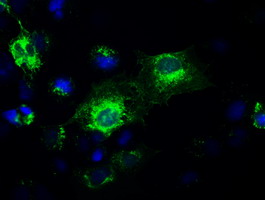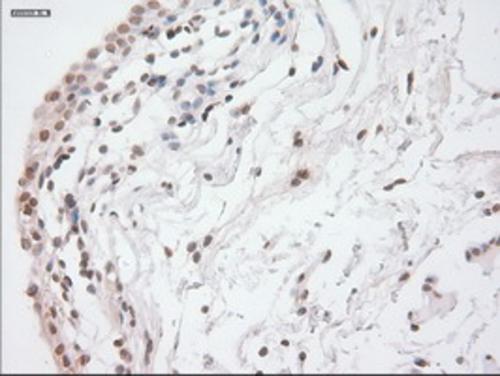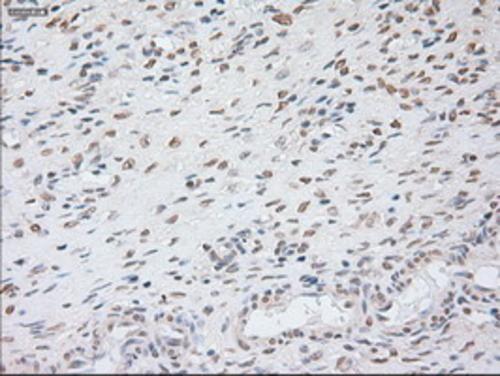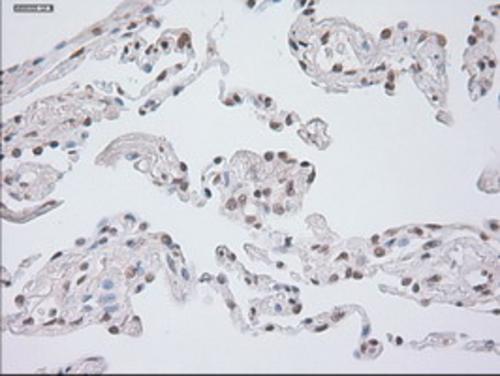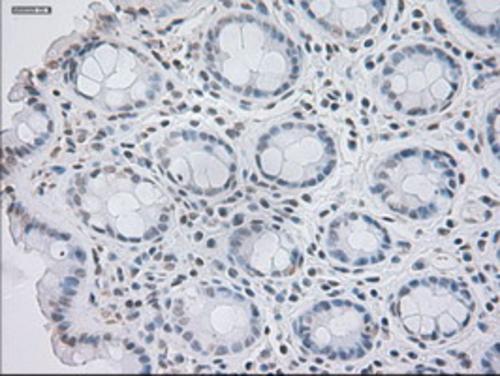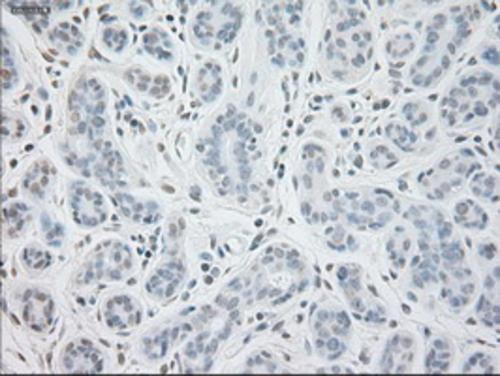GAD67 (GAD1) Mouse Monoclonal Antibody [Clone ID: OTI3H2]
CAT#: CF500328
Carrier-free (BSA/glycerol-free) GAD1 mouse monoclonal antibody, clone OTI3H2 (formerly 3H2)
Formulation: Standard
View other "OTI3H2" antibodies (4)
Need it in bulk or conjugated?
Get a free quote
CNY 3,999.00
Specifications
| Product Data | |
| Clone Name | OTI3H2 |
| Applications | IF, IHC, IP, WB |
| Recommend Dilution | WB 1:500-1:1000, IHC 1:50, IF 1:100, IP: 4ug/mL |
| Reactivity | Human, Dog, Mouse, Rat |
| Host | Mouse |
| Clonality | Monoclonal |
| Immunogen | Full length human recombinant protein of human GAD1 (NP_000808) produced in HEK293T cell. |
| Formulation | Lyophilized powder (original buffer 1X PBS, pH 7.3, 8% trehalose) |
| Reconstitution Method | For reconstitution, we recommend adding 100uL distilled water to a final antibody concentration of about 1 mg/mL. To use this carrier-free antibody for conjugation experiment, we strongly recommend performing another round of desalting process. (OriGene recommends Zeba Spin Desalting Columns, 7KMWCO from Thermo Scientific) |
| Purification | Purified from mouse ascites fluids or tissue culture supernatant by affinity chromatography (protein A/G) |
| Conjugation | Unconjugated |
| Storage Condition | Store at -20°C as received. |
| Predicted Protein Size | 66.9 kDa |
| Gene Name | glutamate decarboxylase 1 |
| Database Link | |
| Background | This gene encodes one of several forms of glutamic acid decarboxylase, identified as a major autoantigen in insulin-dependent diabetes. The enzyme encoded is responsible for catalyzing the production of gamma-aminobutyric acid from L-glutamic acid. A pathogenic role for this enzyme has been identified in the human pancreas since it has been identified as an autoantigen and an autoreactive T cell target in insulin-dependent diabetes. This gene may also play a role in the stiff man syndrome. Deficiency in this enzyme has been shown to lead to pyridoxine dependency with seizures. Alternative splicing of this gene results in two products, the predominant 67-kD form and a less-frequent 25-kD form. |
| Synonyms | CPSQ1; DEE89; GAD; SCP |
| Reference Data | |
| Protein Families | Druggable Genome |
| Protein Pathways | Alanine, aspartate and glutamate metabolism, beta-Alanine metabolism, Butanoate metabolism, Metabolic pathways, Taurine and hypotaurine metabolism, Type I diabetes mellitus |
Documents
| Product Manuals |
| FAQs |
| SDS |
Resources
| 抗体相关资料 |
Other Versions
| SKU | Description | Size | Price |
|---|---|---|---|
| TA500328 | GAD1 (GAD67) mouse monoclonal antibody, clone OTI3H2 (formerly 3H2) |
CNY 1,999.00 |
|
| TA500328AM | GAD1 (GAD67) mouse monoclonal antibody, clone OTI3H2 (formerly 3H2), Biotinylated |
CNY 3,990.00 |
|
| TA500328BM | GAD1 (GAD67) mouse monoclonal antibody, clone OTI3H2 (formerly 3H2), HRP conjugated |
CNY 3,990.00 |
|
| TA500328S | GAD1 (GAD67) mouse monoclonal antibody, clone OTI3H2 (formerly 3H2) |
CNY 800.00 |


 United States
United States
 Germany
Germany
 Japan
Japan
 United Kingdom
United Kingdom
 China
China

